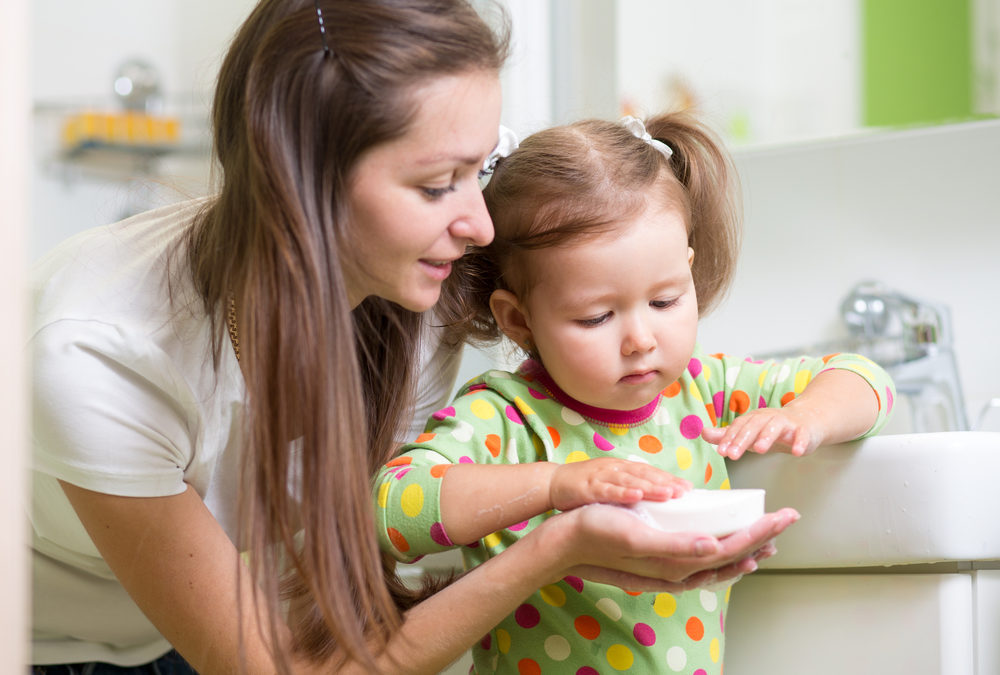Are you a parent or caregiver wondering if you should talk to your children about COVID-19? Well, the answer is an emphatic “yes!”
With school and business closures happening on a large scale, as well as some reopenings, it’s not hard for children to notice that something is different. Besides discussions at home and disruptions in their routines, they may have heard frightening news on television or through social media.
Parents often wonder if the best way to keep their children calm and secure is to shield them from the chaos, put on a brave face, and act like everything is normal. But children tend to worry more if they feel they are being kept in the dark. They may only have bits and pieces of information — even rumors or misinformation — which can cause a lot of anxiety.
It’s important to talk to them about what is going on around the world and within your family system as soon as possible. Here are a few tips to help you start the conversation:
-
- Discredit rumors and be truthful. Speak in a positive manner that they can understand — not with facts and figures. Explain that this is an illness related to common colds and the flu virus. If they ask about death in relation to the virus, you can assure them that most people who have contracted this virus are currently recovering; they may spend some time in the hospital, but they get to go back home once they’re better.
- Remain calm and avoid blaming others. Kids pick up a lot from not just what you say, but also how you say it. Remaining calm will go a long way in reassuring them. It is not helpful to place blame; viruses can make anyone sick, so don’t introduce ideas that lead to stigmatizing certain races or ethnicities.
- Consider their developmental level and temperament. Ask them open-ended questions about what they have heard about the virus to gauge their level of understanding. This will help you know where to start and give you a chance to clarify any misconceptions. Some children may require more explanation and reassurance. It is normal for children to continue to play and act normal; that is their “job” as children and it is often how they cope.
- Maintain a normal routine as much as possible and let them know what to expect. Let them know we are learning new things about the virus daily and you will share new information as you learn new things. Let them know you will be seeing fewer people and let them know why. It is not easy to stick to a routine when schools close so try to establish a new one as best you can. Some children struggle with big changes in their environments, so give them time to adjust. Making a visual schedule or calendar will help children envision how things will go.
- Empower them to have some control — and make it fun! Teach them proper hand-washing and practice with a song, do an educational activity, or show them a video to explain how germs spread. Teach them about not touching their faces and how to practice good habits when they cough or sneeze. Let them know the steps you are taking within your home to protect your family and let them know how they can help with that. Find ways to make this fun and engaging. One idea is to make your child the official “germ-buster” of the household. If you have multiple children, hold your own art contest and ask them to create cards for elderly family members or for patients at Children’s Hospital at Erlanger.
- Limit TV and social media. Limit television viewing or access to information on the internet and through social media. Try to avoid watching or listening to information that might be upsetting when your children are present. Engage in more family time without screens and practice what you preach for yourself as well. Consuming an appropriate amount of information and media will help everyone in the family fend off unnecessary worry and panic.
Most importantly, understand that this is not a one-time conversation. We encourage you to remain available to talk and answer questions as the situation changes in our world and in our local communities. Make space for them to ask questions, and know that this will probably be something you have to discuss and explain multiple times.
For more information on COVID-19 precautions or on steps to take if you or a loved one is experiencing symptoms, please visit our website.







